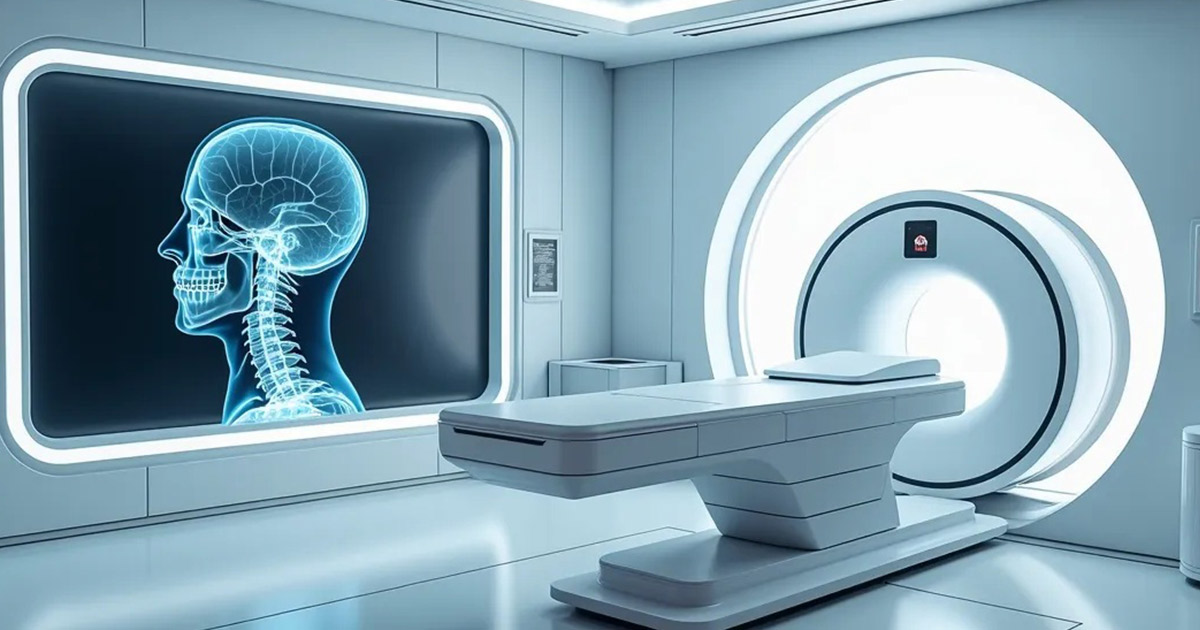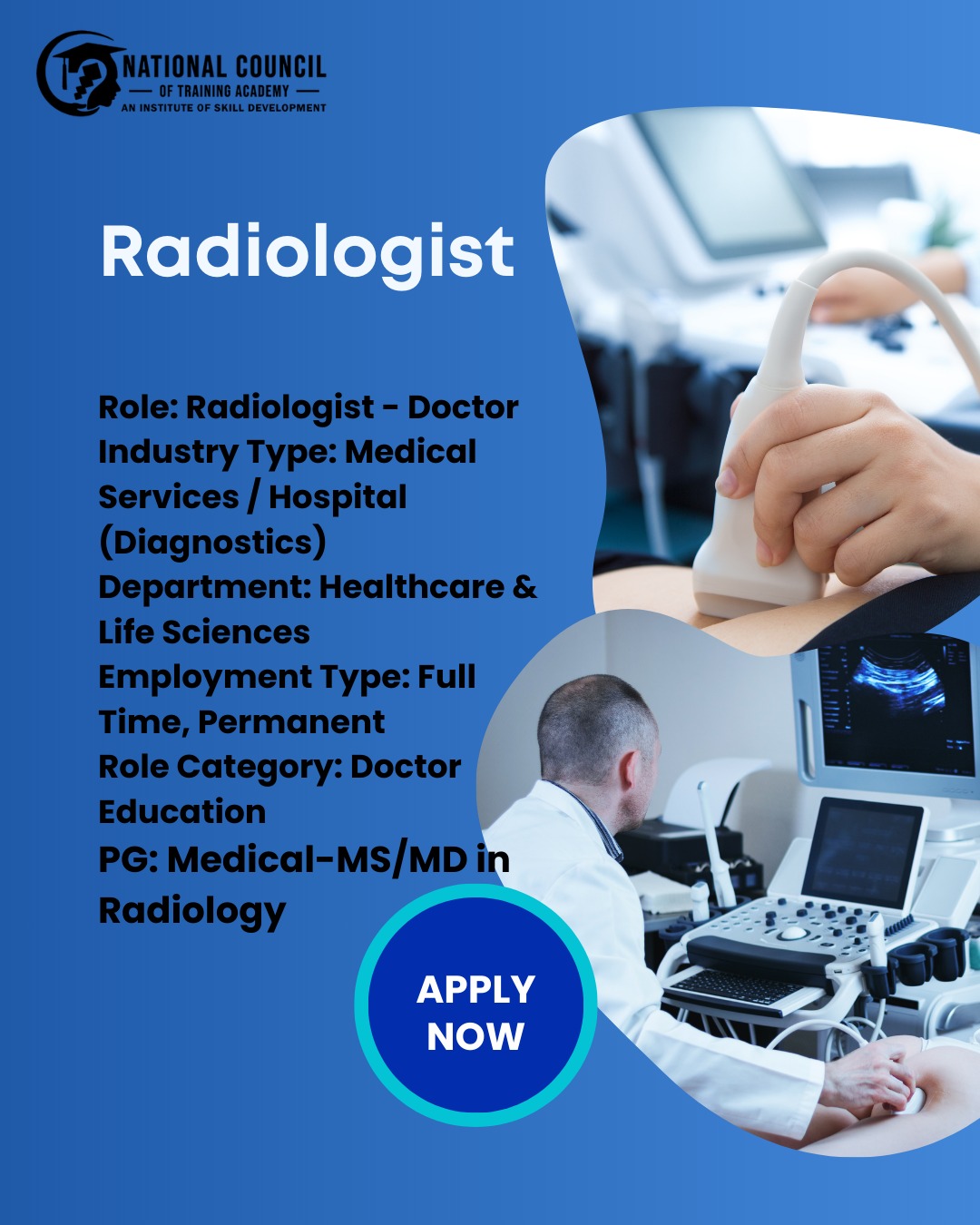
Bachelor of Science Radiology & Imaginary Technology (RIT)
By NCTA Team Last Updated: December 31, 2025Overview:
Bachelor of Science (B.Sc.) in Radiology and Imaging Technology is a full-time, 3-year undergraduate program spread over 6 semesters. This course focuses on educating students in the field of medical imaging and radiological sciences. The program imparts in-depth knowledge and skills required to operate sophisticated imaging equipment and carry out diagnostic procedures like X-rays, MRI (Magnetic Resonance Imaging), CT scans (Computed Tomography), ultrasound, and other imaging techniques used in healthcare.
Radiology and Imaging Technology play a crucial role in modern-day medicine as it helps in diagnosing diseases, monitoring treatment progress, and planning surgeries. The curriculum provides a solid foundation in the principles of radiology, including anatomy, physiology, radiation physics, imaging techniques, and patient care. Alongside theoretical understanding, students will engage in hands-on clinical practice in hospitals or diagnostic centers to gain practical experience in handling imaging equipment, ensuring radiation safety, and assisting radiologists in accurate diagnosis.
This program prepares students for a career in the rapidly growing field of medical imaging and radiology, where they will learn how to produce high-quality diagnostic images that are essential for patient care, treatment, and management.
Course Curriculum
The curriculum for the Bachelor of Science in Radiology and Imaging Technology includes modules that establish a firm grounding in radiology and medical imaging. Core modules include:
- Human Anatomy and Physiology
- Principles of Radiographic Imaging
- Radiological Physics and Radiation Protection
- Advanced Imaging Techniques: CT, MRI, and Ultrasound
- Radiographic Positioning and Procedures
- Radiopharmaceuticals and Nuclear Medicine
- Medical Imaging Equipment and Instrumentation
- Digital Imaging and Picture Archiving Systems (PACS)
- Pathology for Imaging Professionals
- Radiobiology and radiation safety
- Medical Ethics and Professional Practices
- Research Methodology and Biostatistics
- Clinical training
Career Opportunities
Graduates of the B.Sc. in Radiology and Imaging Technology course can choose several careers after completing the course. Potential career profiles that one could go for in this realm include:
- Radiologic Technologist
- MRI Technologist
- CT Scan Technologist
- Ultrasound Technician
- Radiology Technician
- Interventional Radiology Technologist
- Radiation Safety Officer
- Medical Imaging Specialist
- Research Assistant in Radiology
- Radiology Equipment Technician
- Academic and Clinical Instructor
Fields of Employment
Various fields that a graduate can seek employment in include:
- Hospitals and Diagnostic Centers
- Imaging Clinics
- Radiology Departments in Health Care Institutes
- Companies manufacturing medical equipment
- Research and development laboratories
- Academic and Training Institutes
- Public Health Departments
- Government and private health care organizations
- International Health Organizations
- Corporate Health and Wellness Centers
Graduates can expect to earn an average salary of INR 20,000 to 50,000 per month, depending on job roles, sectors of engagement, and past working experiences.
Course Features
| Course Code | UDC-638 |
| Duration | 3 Years |
| Category | Bachelor of Science Radiology & Imaginary Technology (RIT) |
| Eligibility | XII with Science from recognized board |
| Fees | 3×48000= 144000 |
To know more about our this course, feel free to call us at:
+91 9733600770Ready to Enroll in This Course?
Start your learning journey today and unlock your potential!
Apply Now for This CourseCurrent Job Opportunities for This Course
Radiologist Doctor – Apollo Hospitals Delhi NCR
Apollo Hospitals Delhi / NCR (Indraprastha Apollo Hospitals, New Delhi)Indraprastha Apollo Hospitals, New Delhi is inviting applications for the position of Radiologist Doctor for full-time roles in diagnostic and radiology services.
Read MoreSenior Resident – Radiology (Corporate Hospital, Delhi)
Consultancy Services (Posted by HealthCon) New DelhiCorporate hospital in Delhi is hiring a Senior Resident (Radiology) with MD/DNB/DMRD qualification and up to 3 years of experience, offering a negotiable salary of up to ₹37.5 LPA.
Read More


